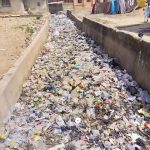WHO Alerts Nigerians Over Dangers In Illegal Electronic Waste Disposal


The World Health Organization (WHO) has warned that illicit electronic device disposal endangers the health of mothers, children, and unborn newborns.
This was contained in a recent report titled “Children and Digital Dumpsites,” the Organization observed that the disposal of electronic equipment, or e-waste, has become the world’s fastest increasing residential trash category.
According to Director, Department of Environment, WHO, Maria Neira, said that exposure to electrical and electronic waste and its many toxic components unquestionably impacts the rights of children and adolescents to grow and learn in a healthy environment.
He said, “The health sector can play a role by providing leadership and advocacy, conducting research, influencing policy-makers and engaging communities.
“It can also play a role by reaching out to other sectors to demand that health concerns be made central to e-waste policies.
“The Global E-waste Statistics, 53.6 million tonnes of e-waste were produced globally in 2019, with only 17.4 percent being collected and recycled properly.
“While some e-waste winds up in landfills, the report finds that a large quantity is illegally trafficked to low and middle-income nations, where children and teenagers pick through, dismantle, or use acid baths to extract valuable metals and minerals from the discarded items.
“Informal methods of removing materials from e-waste have been linked to a range of health effects, especially in children “Recycling e-waste particularly impacts those in vital stages of physical and neurological development, with children, adolescents and pregnant women most vulnerable.
“Children are more susceptible to the toxic chemicals because they absorb pollutants relative to their size and, with not-fully-developed organs, are less able than adults to eradicate harmful substances,” it said.
According to the report, 12.9 million women who work in the informal trash sector risk exposing themselves and their unborn children to harmful residue.










